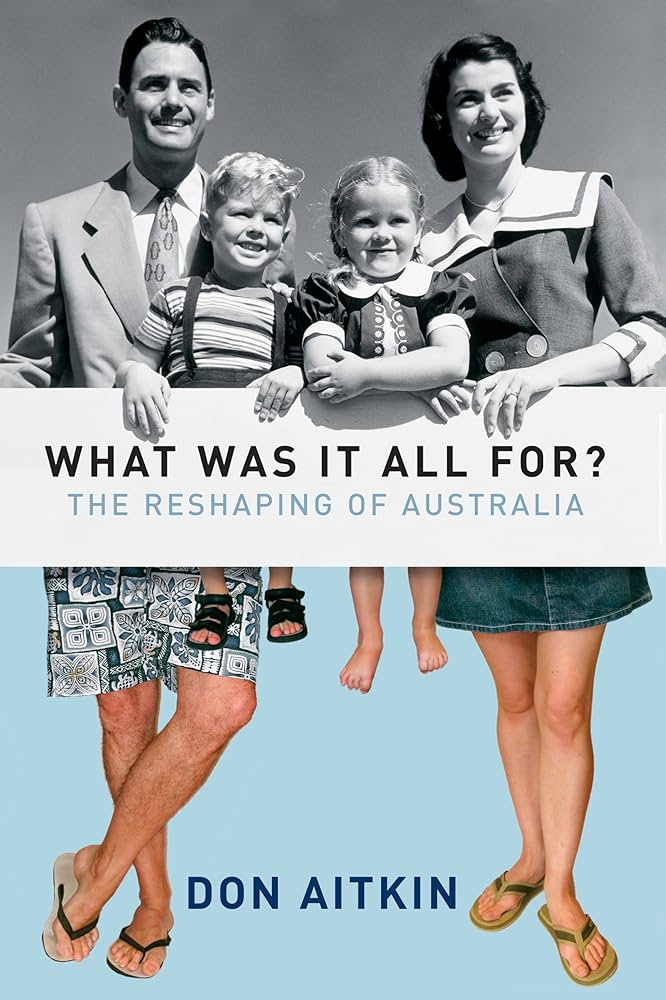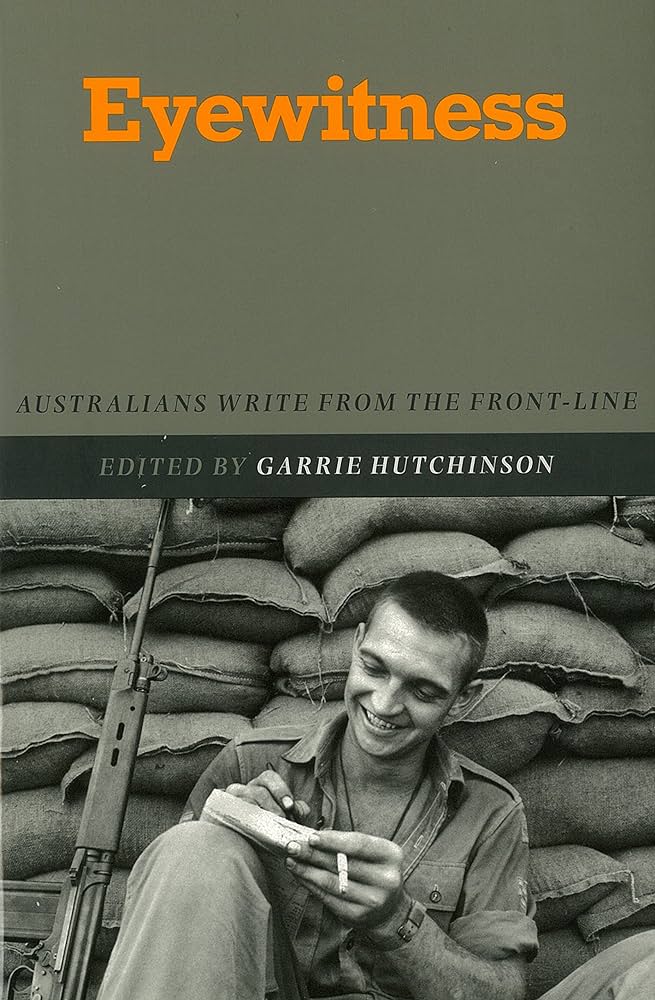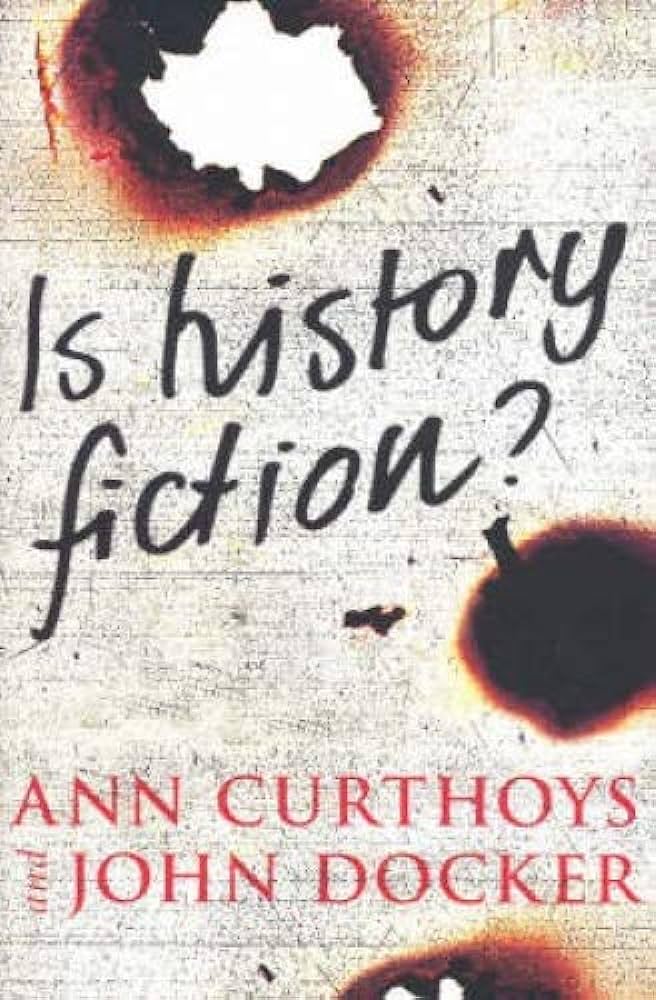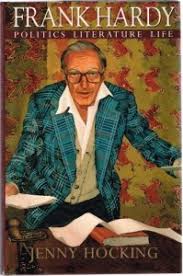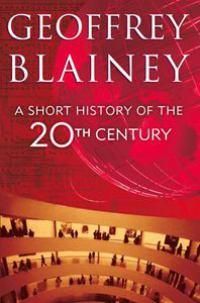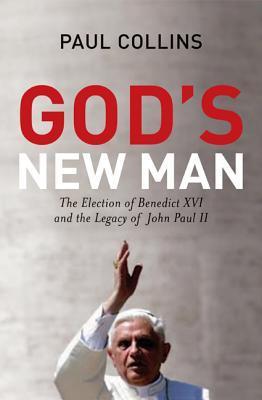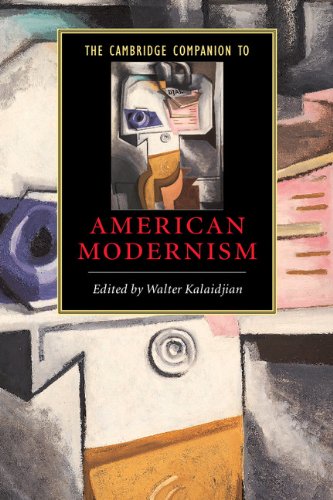Non Fiction
What Was It All For? by Don Aitken & Australia Fair by Hugh Stretton
Don Aitken was born in 1937, Hugh Stretton in 1924. They have both had distinguished academic careers, making important contributions to the development of Australian social science, and at various points have been prominent in public debate. Both of these books might be seen as reflections on the current state of Australia, about which the younger Aitken is clearly more optimistic than is Stretton.
... (read more)Eyewitness: Australians write from the front-line by Garrie Hutchinson
It is one of life’s ironies that war can bring out the best in people, and writers are no exception. Picture Australian seaman Ray Parkin as he toiled like a slave for the Japanese on the Thai–Burma railway during World War II. Despite the brutality and privations, Parkin felt that the experience would ‘not be entirely wasted’ if he could somehow get his diary and drawings home when it was all over. These were crucial, for, as he wrote, ‘Memory is not enough’. Parkin’s reflections go to the kernel of oral versus written memory, and why humans write in the first place: to make a record that can speak by itself, even when the writer is dead. His words could also serve as an appropriate epigraph to Eyewitness, a collection of diaries, memoirs, correspondents’ reports and analysis, all composed by Australians at ‘the front-line’ of wars and conflicts.
... (read more)Australian Dictionary of Biography: Supplement, 1580–1980 by Christopher Cunneen
The first volume of the Australian Dictionary of Biography appeared in 1966, the sixteenth in 2002, by which stage the series included persons who had died prior to 1981. This one-volume Supplement includes those who were for one reason or another omitted from the main volumes. It is an impressive achievement. There are 504 biographies, written by 399 authors. Almost all are well written and carefully researched, with up-to-date lists of sources. The editor and his associates have had the Herculean task of melding all these biographies into a work of reference in which the entries have a consistency in the type of information presented, while at the same time allowing for the individuality of each subject and author. In this, they have succeeded admirably. The volume has the air of authority.
... (read more)This is a book for people interested in the law, politics and the institutions of public life, areas in which Sir Edward Woodward was actively involved for the last half century. It is a record of achievement and provides an interesting and clear-eyed perspective on many of the important issues of that period.
... (read more)Australia Imagined: Views from the British periodical press, 1800–1900 edited by Judith Johnston and Monica Anderson
Judith Johnston and Monica Anderson have assembled a book full of quotable quotes for future scholars: ‘The typical Australian is an Englishman with a dash of sunshine in him’; or ‘Why has God given to England nearly all the waste places of the earth, unless she is to fill them?’ (1899). Perhaps even more chilling: ‘the acknowledgement of sin amongst a good many blacks proves the working of the Spirit of God’ (1861). Australasia might be ‘the Paradise of the working man’, but it was ‘the Sahara of the scholar’ (1895). The book reminds us how commonly ‘Australia’ was imagined as ‘Australasia’. The idea of a ‘Federated Australasia’ embraced the Australian colonies, Fiji, British New Guinea, and ‘any other British territories in the South and West Pacific’ – not least, of course, ‘the Britain of the South, New Zealand’ (1896). On the other hand, ‘of all the disunited states of Greater Britain, Australasia appears to be the most disunited’ (1890).
... (read more)In recent years, there has been significant public anxiety over Australia’s past, and historians have found themselves in the middle of a contest over increasingly urgent issues of historical narrative and approach. It has been a heated debate, encapsulated by a series of graphic and divisive metaphors proclaiming history’s ‘murder’, ‘fabrication’ and even the ‘killing of history’. While these so-called ‘history wars’ have come to dominate discussion of Australia’s past, the limitations of such debate are telling: history has been forced into opposing camps (left–right, black–white etc.); and examining contrasting readings of the past without falling into its prescribed lines of division now seems more difficult than ever.
... (read more)In reading a biography of Frank Hardy, it is almost impossible to separate the man, as subject, from the work for which he is famous, the novel Power Without Glory (1950) based on the life of John Wren. If I did not want to reach for my gun every time I hear the word ‘icon’ these days, I would say that this novel still has iconic status in Australian culture. The title is a pithy reworking of Graham Greene’s novel The Power and the Glory (1940), about the ethics of a Catholic priest in southern Mexico. Like Greene, Hardy was driven by a quasi-religious commitment, but for him it was a lifelong commitment to the Communist Party of Australia (CPA) rather than to Catholicism.
... (read more)Geoffrey Blainey made his reputation as a prolific and accomplished economic historian, then turned to broader themes and wrote important analytical works, including The Tyranny of Distance (1966), The Causes of War (1973), The Triumph of the Nomads (1975), and The Great Seesaw (1988). When the so-called ‘history wars’ began in the 1980s, Blainey was characterised as an optimistic conservative, critical of ‘the black armband’ view of Australian history attributed to the more radical Manning Clark. I thought the differences between Clark and Blainey were grossly exaggerated. Paradoxically, Blainey took a serious interest in Aborigines and women’s issues long before Clark did.
... (read more)God’s New Man: The election of Benedict XVI and the legacy of John Paul II by Paul Collins
The late pope John Paul II was the greatest celebrity of modern times. Although he was the sovereign of the world’s smallest state, his influence seemed greater than that of any secular ruler. Did he not bring down communism in Poland by sheer spiritual power? Did he not provide a new moral leadership for mankind, speaking simple truths to millions seeking guidance in a confusing world?
... (read more)The Cambridge Companion to American Modernism by Walter Kalaidjian
The Penguin Dictionary of Literary Terms, to take a random example, indicates the challenges facing anyone undertaking a definitive and detailed account of modernism. According to the Dictionary’s author, J.A. Cuddon, modernism is: ‘A comprehensive but vague term for a movement (or tendency) [that] pertains to all the creative arts, especially poetry, fiction, drama, painting, music and architecture.’ As he notes, it is a matter for debate as to whether modernism, ‘as an innovative and revivifying movement’, was essentially over by the late 1940s or persisted well beyond that period. The ‘vagueness’ of the term ‘modernism’ and of its definitions reflects the diversity of artists, works and ideas that it encompasses; and the implicit contradiction of Cuddon’s pairing of the adjectives ‘innovative’ and ‘revivifying’ is suggestive of modernism’s emphasis on both radical originality and engagement with (rather than uncomplicated rejection of) the past.
... (read more)

